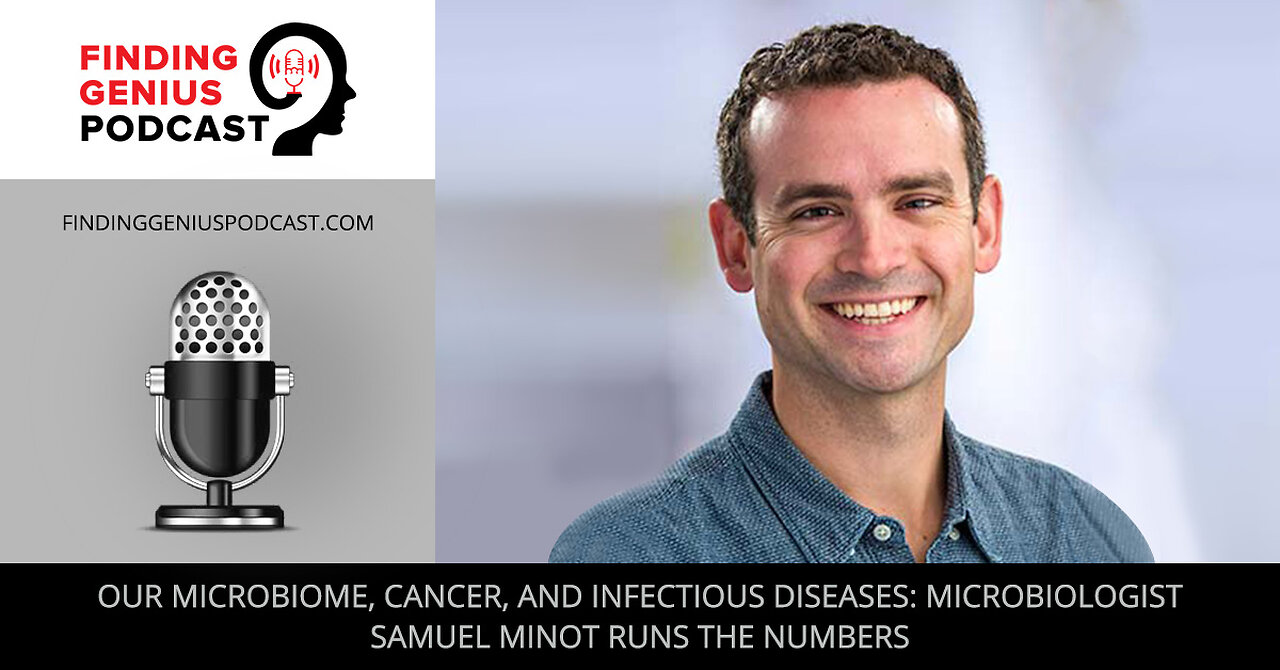Premium Only Content

Our Microbiome, Cancer, and Infectious Diseases Microbiologist Samuel Minot Runs the Numbers
A microbiologist by training, Sam Minot now works as a computational biologist helping other scientists understand the data between of human microbiome and health connections.
In this podcast, he explains
1) Why the complexity of bacteria and viruses is important in how scientists might approach infectious viruses and infectious diseases,
2) Why is it difficult to culture "all" bacteria and what that means for microbiome study approaches, and
3) How approaches that prioritize gene-level impact on human health can lead to microbiome-based therapeutics for diseases like cancer.
Samuel Minot is a Staff Scientist with the Microbiome Research Initiative in the Vaccine and Infectious Disease Division of the Fred Hutch Cancer Research Center. He begins this conversation with a foundational question in microbiology: how do the microbes on us impact our health? He then discusses the complexity of the interaction of bacteria and the viruses that infect them, also called phages.
He offers examples of new discoveries constantly upending our picture of what viruses and bacteria can do and ways infectious viruses impact some bacteria and cause disease. As an example, he discusses cholera, which is harmful because of a satellite virus that infects a bacterium: the two together make the disease.
He then lays the ground for why it is important to prioritize a gene-level study of our microbiome by describing the impossibility of culturing every bacterium. He describes what functional annotation is and how that concept allows him to identify genes that affect human health and work to understand data at this level. He talks about the big impacts in his field, namely newer findings on how the microbiome influences the treatment of cancer. Studies show that the kinds of microbes in our gut relate to our immune response's handling of different treatments to fight the cancer. In other words, the immune system is poised to respond to cancer treatment based on the microbiome. This is leading to hopeful microbiome-based therapeutic treatments for cancer.
For more, see https://www.fredhutch.org/en/research/divisions/vaccine-infectious-disease-division.html and Sam Minot's blog at minot.bio.
Available on Apple podcast: apple.co/2Os0myK
-
 0:37
0:37
FGP
6 days ago🔋 Unlocking Natural Sources Of Lithium 🌱💧
421 -
 1:50:28
1:50:28
TheDozenPodcast
10 hours agoViolence, Abuse, Jail, Reform: Michael Maisey
54.3K2 -
 23:01
23:01
Mrgunsngear
1 day ago $0.68 earnedWolfpack Armory AW15 MK5 AR-15 Review 🇺🇸
54.5K12 -
 25:59
25:59
TampaAerialMedia
1 day ago $1.31 earnedUpdate ANNA MARIA ISLAND 2025
30.8K3 -
 59:31
59:31
Squaring The Circle, A Randall Carlson Podcast
12 hours ago#039: How Politics & War, Art & Science Shape Our World; A Cultural Commentary From Randall Carlson
23.9K2 -
 13:21
13:21
Misha Petrov
12 hours agoThe CRINGIEST Thing I Have Ever Seen…
19.3K44 -
 11:45
11:45
BIG NEM
8 hours agoWe Blind Taste Tested the Best Jollof in Toronto 🇳🇬🇬🇭
12.7K -
 15:40
15:40
Fit'n Fire
11 hours ago $0.20 earnedArsenal SLR106f & LiteRaider AK Handguard from 1791 Industries
11.1K1 -
 8:34
8:34
Mike Rowe
6 days agoWhat You Didn't Hear At Pete's Confirmation Hearing | The Way I Heard It with Mike Rowe
48.9K23 -
 7:13:44
7:13:44
TonYGaMinG
13 hours ago🟢LATEST! KINGDOM COME DELIVERANCE 2 / NEW EMOTES / BLERPS #RumbleGaming
70.3K4